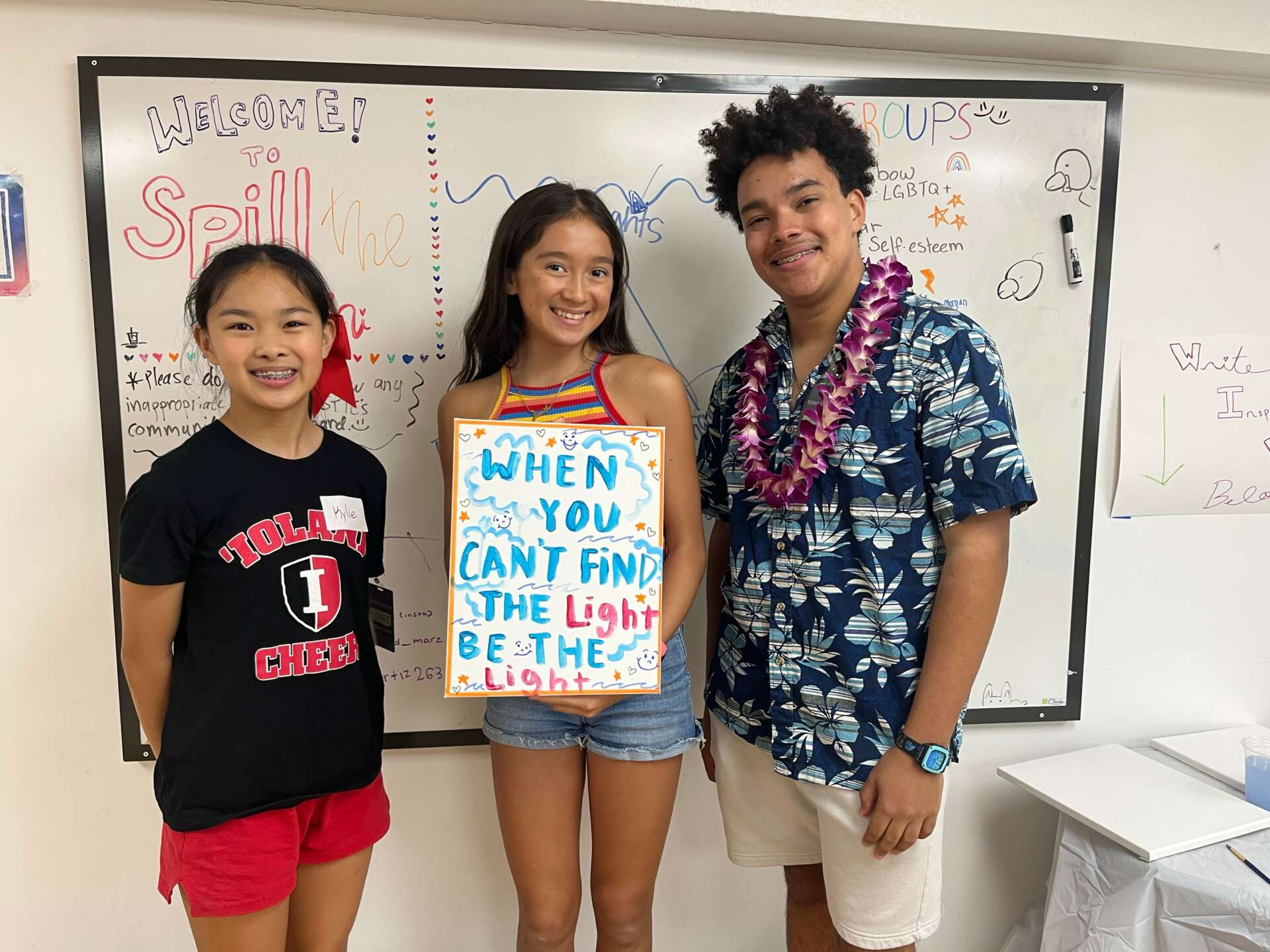We caught up with the brilliant and insightful Raphael Stark a few weeks ago and have shared our conversation below.
Hi Raphael, thanks for joining us today. How did you come up with the idea for your business?
With eyes closed, I quietly breathe in and exhale. My eyes slowly open, revealing a crowd eager to hear the dulcet narrative of my six-year-old voice. I gaze upon an open book resting on the large podium in front of me as I begin to speak into the microphone. My voice, so much larger than my small frame, echoes through the room as I read aloud. Will the countless hours of practice pay off? Will anyone notice my stutter?
More than 3 million Americans have a stutter and nearly 7% of Americans have some form of speech impairment. Those with speech challenges tend to limit their participation in certain activities, have lower self-esteem, poor school performance, and experience social anxiety. In today’s world, communication has become digitized. This way of conversing presented a different set of challenges for teens with speech issues. As all eyes are visible on the screen, one may feel overwhelmed when asked to speak or comment out loud. Anxiety may increase, which can manifest into increased difficulty when speaking.
Through the encouragement of family and friends, I have been able to thrive with my stutter. My speech impediment was not viewed as an obstacle but as an opportunity to shine brighter because of it. Although I was treated with kindness and patience, I sometimes felt alone in my overwhelming struggle to communicate with others. I asked myself, “Are there other teens in my community who are stutterers? Would they like to share their struggles and triumphs with others who are like them?”. Upon further research, I was amazed to learn that, in Hawaii, an organization for teens who stutter did not exist. Teens already have a difficult time navigating through these awkward years, and when compounded with being teased and bullied due to conversational difficulties, it can be too much to handle. Stuttering is a complex disorder that no teenager should have to tackle by themselves. I didn’t want other teens to feel alone. So, I created a nonprofit support group called CHATS: Caring for Hawaii Teens with Speech Challenges, as a way for teens to feel accepted and strengthened by connecting with others who live with speech challenges. It is a safe place for teens ages 13 through 18 to engage in fun activities and connect with speech pathologists and mental health representatives. Our mission of service is to break the walls of misconception through education while providing support and resources for youth with speech challenges.
In partnering with Mental Health America of Hawaii, CHATS has been presented to over 475 students and 530 adults in the community. The presentations focus not only on CHATS’ message for those with speech challenges, but also on the importance of treating those who are different with respect and understanding. Reaching more students, educators, and parents will be an ongoing goal of service through education and support. I had hoped to have presented at more schools; however, the process of arranging meetings with school administration and gaining approval to present in schools has been very slow. This has given me the opportunity to broaden my approach, such as approaching local papers to feature a story about CHATS. My work did pay off! CHATS was recently highlighted in a “Proof Positive” article in a local periodical which will be distributed to thousands of households island wide and CHATS was featured in local television news segments. I recently hosted a Meet and Greet at Spill the Tea Café (mental health clinic for teens) where I held a raffle to raise funds to help teens seeking speech therapy. Later this year, I am to give a Grand Rounds presentation to an audience of doctors, pharmacists, and others in the medical field to stress the importance of study and treatment for youth living with speech and communication issues.
As president of a non-profit, I am also learning the rather complicated logistics of running a 501c3 organization. Board meetings, Roberts rules of order, officers reports, and emails with lawyers are now a part of my life. My journey, thus far, has been a struggle at times; however, it has taught me to be flexible, patient, and open to change.
So, how does the story end about that six-year-old who read a book in front of a large crowd of people? Yes, I did stumble through a few words, but no one seemed to notice. When I finished my narration, applause filled the space with happiness, acceptance, and understanding. It was clear to me that family and community gave me the courage to outshine my stutter.
While creating CHATS, I was inspired by my younger self, to help teens find their voice and to teach the community to listen.
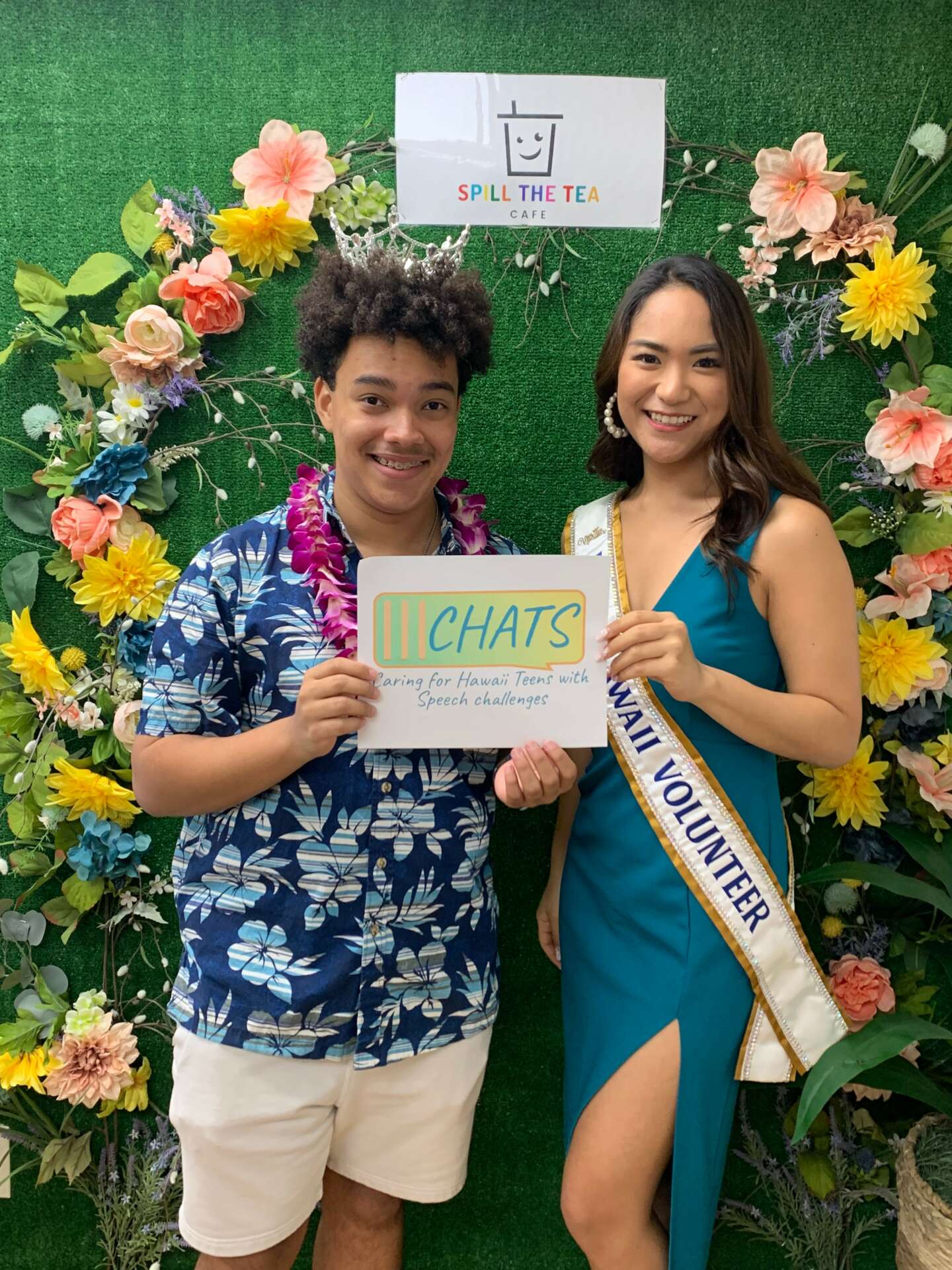
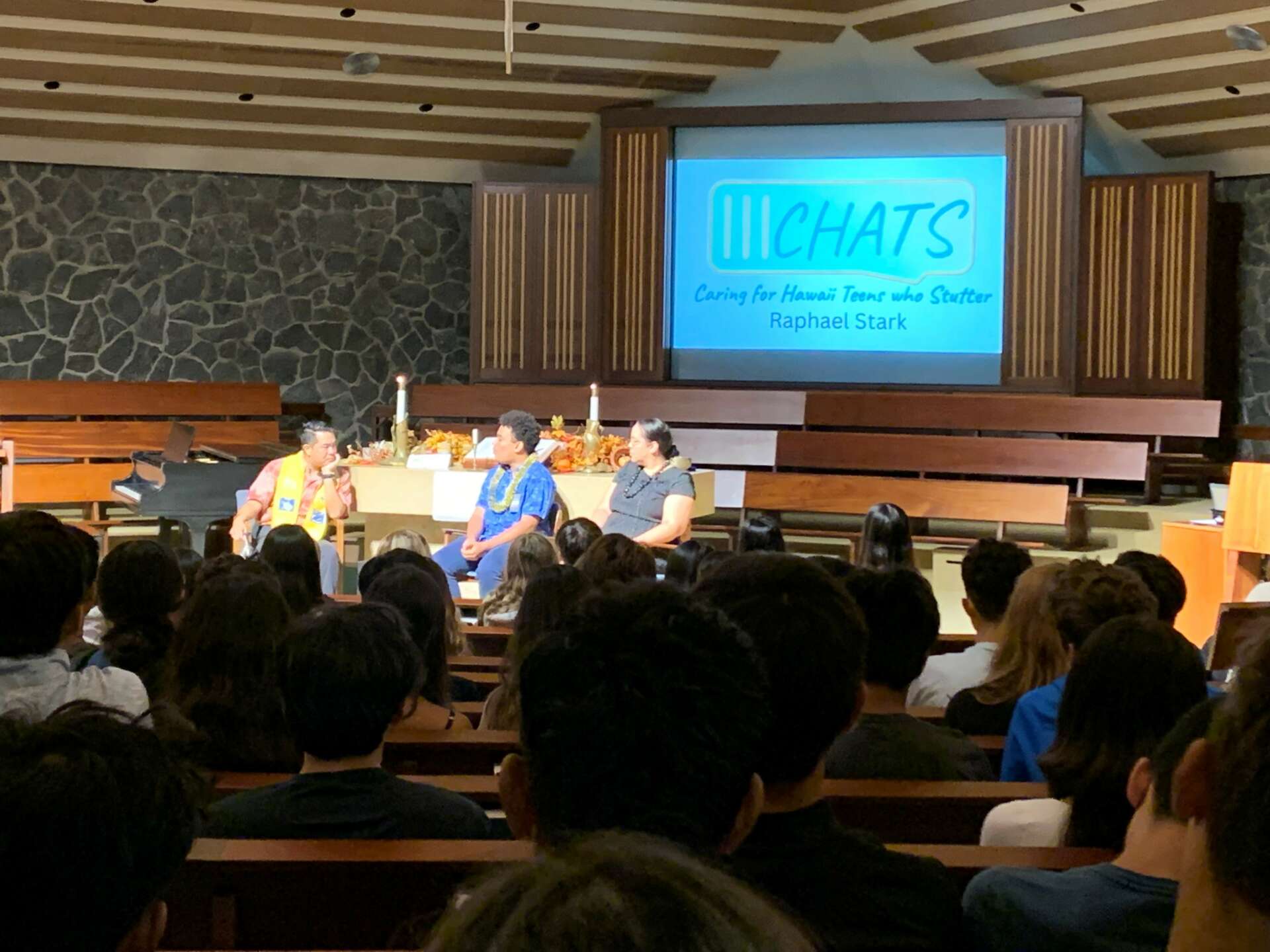
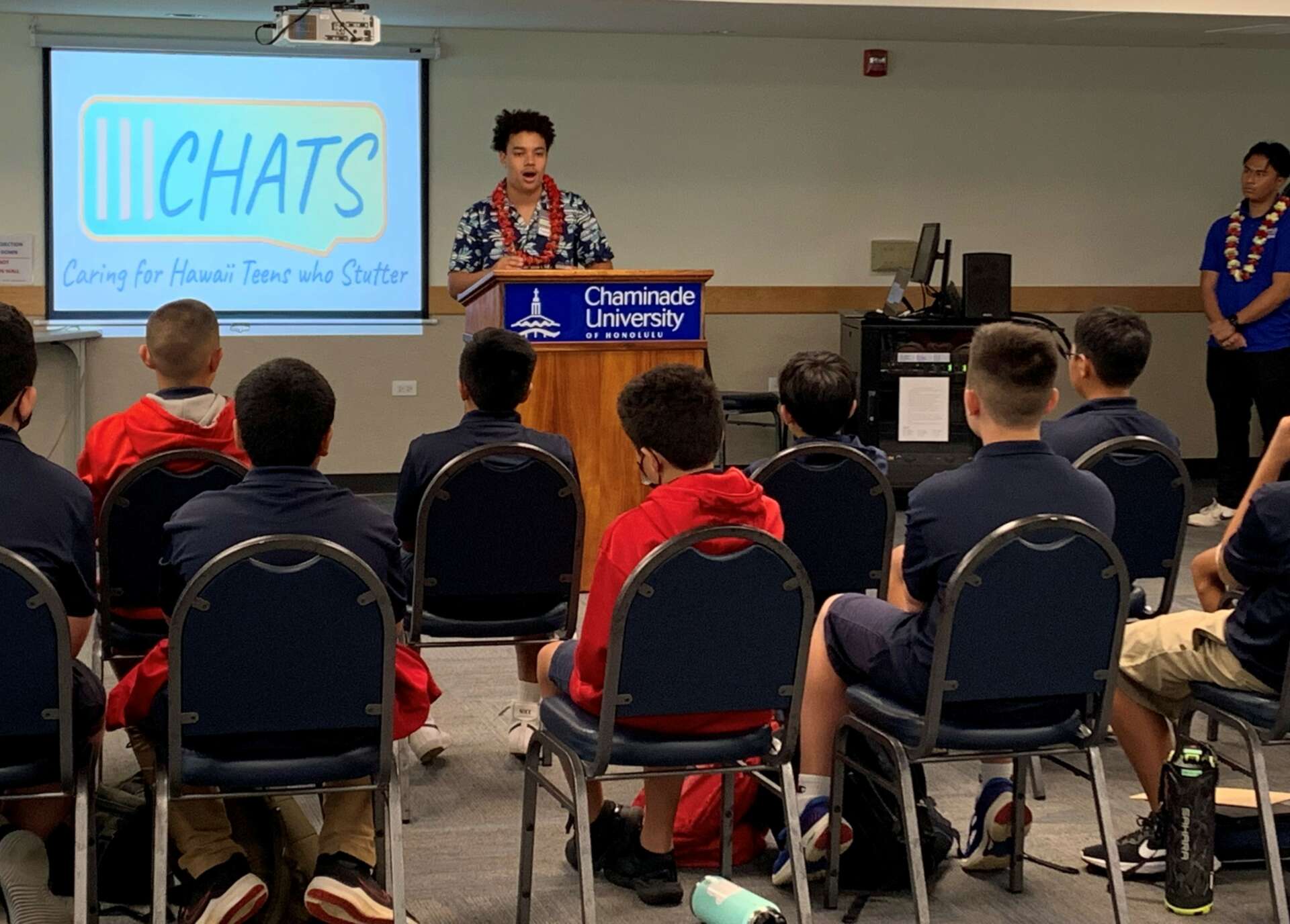
Raphael, before we move on to more of these sorts of questions, can you take some time to bring our readers up to speed on you and what you do?
Did you know that everyone has experienced the feeling of being tongue-tied? Now, imagine being a teenager who is always tongue-tied due to a stutter or other speech challenge. Imagine how difficult it would be to navigate through school, friends, and family with this unique challenge.
Aloha! My name is Raphael. I am a 16-year-old home schooled sophomore from Hawaii, who happens to be the founder of a nonprofit support group called CHATS: Caring for Hawaii Teens with Speech Challenges. It is the first organization in Hawaii dedicated to bringing hope and encouragement to fellow teens with speech challenges. As someone who has been teased due to my stutter, I have made it my goal to educate the community to normalize those with speech differences, rather than treat them as oddities.
In partnering with Mental Health America of Hawaii, I have been able to speak in schools and within the community about CHATS and mental health issues affecting young people. I want to help others find the resources that will let them live their best life. Activities include fun gatherings and informational meetings with specialists in the field of speech pathology. I also have a six-week series for teens and their parents. Teens will be able to speak with specialists and those who have thrived through their speech challenges, while parents are given the skills they need to better help their unique teens.
Feeling tongue-tied shouldn’t stop a teen from being heard. CHATS is here to help teens find their voice and to teach the community to listen.


We’d love to hear a story of resilience from your journey.
I started CHATS during the pandemic. Needless to say, it was difficult to organize in-person gatherings. I would plan an event only to cancel or postpone it due to Covid restrictions. I could have gone virtual but I was determined to meet in-person. Honestly, I was getting Zoom fatigue! I took patience and lots of creativity but I was finally able to have our first ever CHATS meet and greet! It was held outdoors at a nearby beach park and was well attended!

How’d you meet your business partner?
My business partners are actually my parents. A few years ago, we were at dinner and I brought up the idea of a support group for teens who stutter or for those who have other speech challenges. They encouraged me to do some research to see if there was already a group like that in Hawaii. Surprisingly enough, there was not. I then decided to start my own support group and my parents have supported me all the way. They are my not only my partners they are my biggest supporters.
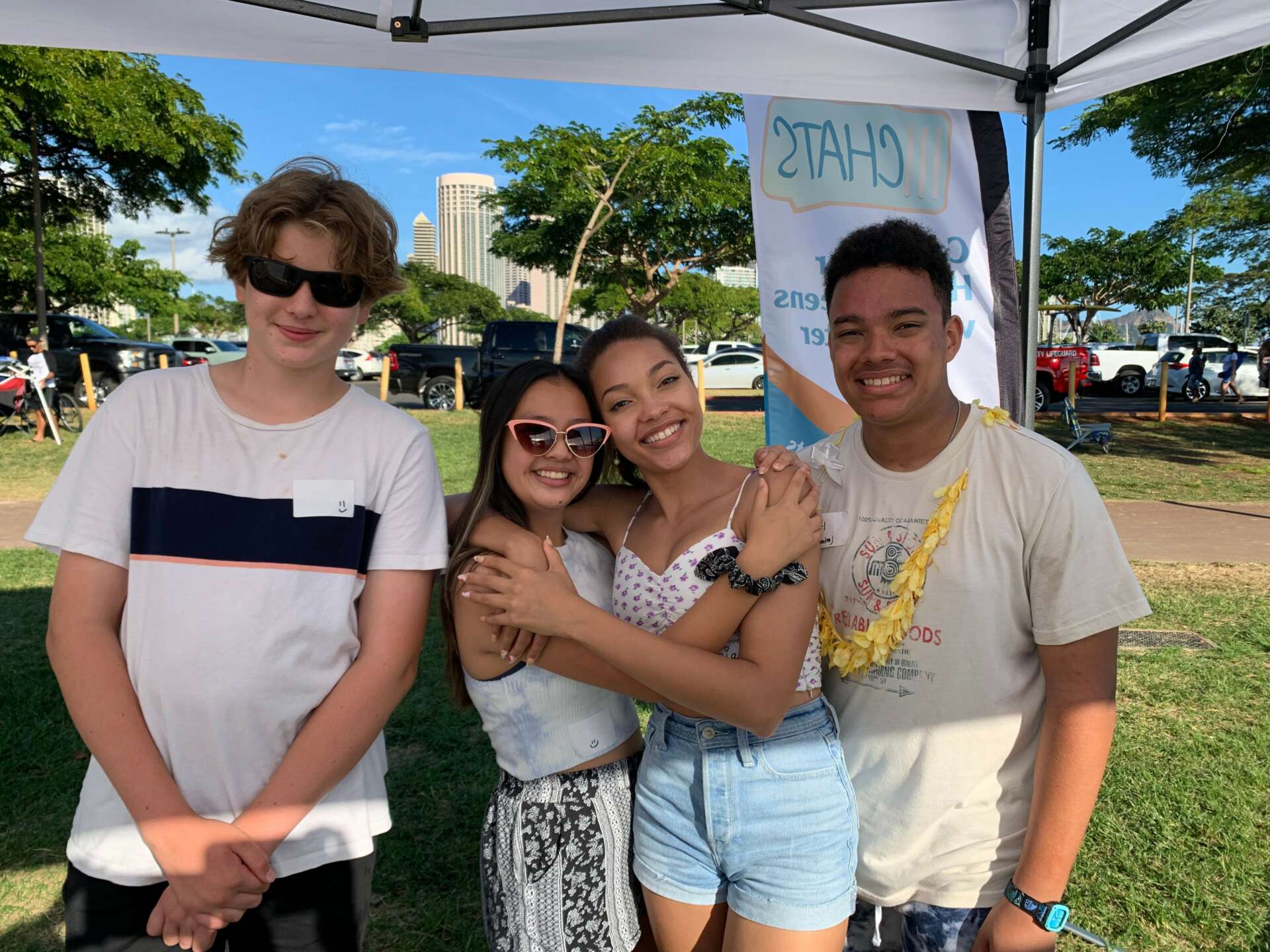
Contact Info:
- Website: www.chatshawaii.org
- Instagram: @chatshawaii
- Other: email: [email protected]


